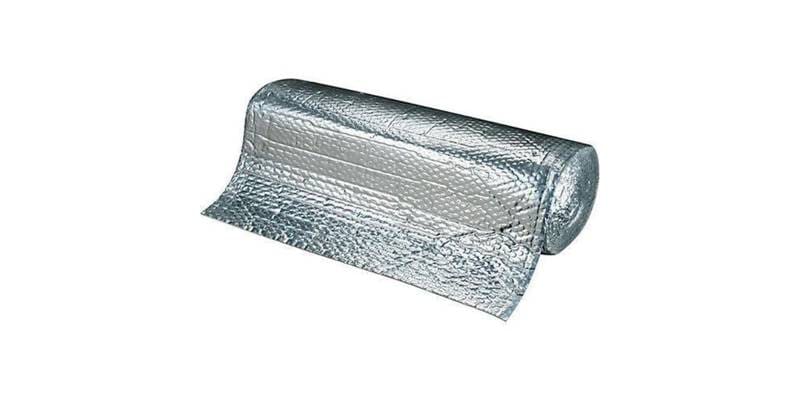Download PDF Brochure: https://www.
Browse
- 128 Market data Tables
- 47 Figures
- 186 Pages and in-depth TOC on “Thermal Insulation Material Market – Global Forecast to 2028”
This report also provides a comprehensive analysis of the companies listed below:
The key global players in the thermal insulation material market are Saint Gobain SA(France), Kingspan Group(Ireland), Rockwool International A/S (Denmark), Owens Corning(US), Knauf Insulation(US), BASF SE(Germany), Asahi Kasei Corporation(Japan), Recticel(
Merger & acquisitions, investments & expansions, partnerships & collaborations, and new product developments are some of the major strategies adopted by these key players to enhance their positions in the thermal insulation material market.
Recent Developments in Thermal Insulation Material Market
- In February 2023 Saint-Gobain and Dalsan have obtained the necessary approval from competition authorities to merge their plaster and plasterboard activities in Turkey.
- In February 2023 Saint-Gobain has entered into a definitive agreement to acquire U.P. Twiga Fiberglass Ltd. (UP Twiga), the leader on the glass wool insulation market in India.
- In February2022, Kingspan Group completed its acquisition of THU PERFIL SL, the Valencian firm specializing in metal ceiling profiles. THU has decades of experience in ceilings, roofing, drywall, and partition profile manufacturing.
- In March 2022 Knauf insulation officially opened a new Glass Mineral Wool thermal insulation recycling facility with an investment of USD 12.5 million in Vise, Belgium, paving the way for an exciting new recycling service for the construction and deconstruction industry.
- In July 2021, Asahi Kasei announced that it had completed the acquisition of Sage Automotive Interiors, a leading provider of automotive interior materials. The acquisition is expected to strengthen Asahi Kasei’s position in the global automotive market.
- In June 2021, Rockwool International A/S expanded its business by building a new production facility in Soissons, France. The new facility created 130 jobs and uses low-carbon electric melting technology to produce stone wool insulation for the French market.
Request Sample Pages: https://www.
Based on material type, the thermal insulation material market has been segmented into Fiberglass, Stone Wool, Foam and Wood Fiber. Fiberglass holds the largest share in terms of value. This is due to the versatile nature of the material that makes it fit for various industries. Fiberglass possesses certain characteristics like strength and longevity making it ideal for use in certain products and structures. It is also highly resistant to corrosion and extreme weather conditions, making it a good choice for use in harsh environments.
Based on the temperature range, the thermal insulation material market has been segmented into 0-100℃,100-500℃,500 ℃ and above. The global market is being dominated by the 0 to 100 °C segment due to its diverse range of end use industries. In building construction, thermal insulation materials with resistance to this range of temperatures are used to improve energy efficiency, reduce heating and cooling costs, and increase overall comfort. These materials help to prevent heat transfer through walls, floors, and roofs, keeping indoor spaces cooler in the summer and warmer in the winter.In industrial settings, thermal insulation materials with resistance to this range of temperatures are used to protect equipment and workers from extreme temperatures. These materials help to reduce heat loss or gain, maintain consistent process temperatures, and increase safety in high-temperature
Based on end-use industry, the thermal insulation material market has been segmented into construction, automotive, HVAC and industrial application. The construction holds the largest market share in terms of value. The residential sector is one of the major end-users of thermal insulation materials. The demand for thermal insulation materials in the residential sector is driven by the need for energy-efficient homes, reduced heating and cooling costs, and enhanced indoor comfort. Insulating the building envelope, including walls, roofs, and floors, is crucial to reduce heat loss or gain and maintain optimal indoor temperatures throughout the year.
The non-residential sector includes commercial buildings, industrial facilities, healthcare centers, educational institutions, and government buildings. The increasing focus on energy-efficient and sustainable construction practices, coupled with stringent building codes and regulations, has led to the widespread adoption of thermal insulation materials in the non-residential sector.
Europe is the largest market for thermal insulation material but Asia Pacific is the fastest growing region for the thermal insulation material market. This growth is mainly attributed to increased demand due to focus on energy efficiency and sustainability. As countries in the region continue to industrialize and modernize, energy demand is expected to increase significantly, leading to higher carbon emissions and negative impacts on the environment. This has led to a growing focus on energy efficiency and sustainability, with governments and businesses actively seeking solutions to reduce energy consumption and greenhouse gas emissions.
The increased number of end-use industries of thermal insulation material, such as construction, automotive, HVAC and industrial applications in Asia Pacific, is expected to support the thermal insulation material market growth during the region’s forecast period.
Inquire Now: https://www.
Download PDF Brochure of Trending Upcoming Reports:

